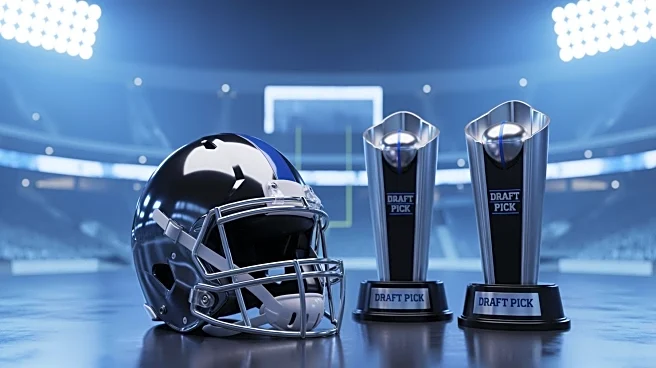What is the story about?
What's Happening?
Wyc Grousbeck will remain as CEO of the Boston Celtics for the next five years following the team's sale to Bill Chisholm. Chisholm, a Massachusetts native and private equity investor, purchased the Celtics for a record $6.1 billion, marking the highest price for an American professional sports franchise. Grousbeck's ownership share will drop below the 15% required to be the team's designated governor, but he will serve as an alternate governor. Chisholm has expressed his commitment to maintaining the team's success and aims to win more championships. The Celtics are undergoing a transition period, having traded key players Jrue Holiday and Kristaps Porzingis to avoid salary tax penalties.
Why It's Important?
The sale of the Boston Celtics represents a significant shift in the ownership landscape of one of the NBA's most storied franchises. With a new owner committed to winning championships, the team may see strategic changes that could impact its competitive standing. The financial implications of the sale, including the record valuation, highlight the growing economic value of sports franchises. The retention of key figures like Grousbeck and Brad Stevens suggests continuity in leadership, which could stabilize the team during this transition. The trades made to avoid salary tax penalties indicate a focus on financial management, which could influence future roster decisions.
What's Next?
As the Celtics navigate this ownership transition, the focus will likely be on maintaining competitive performance while managing financial constraints. Chisholm's leadership will be tested as he balances the desire for championship success with the realities of salary cap limitations. The team's management will need to strategize effectively to build a roster capable of competing at the highest level. Additionally, Chisholm's interest in potentially bringing a WNBA team to Boston could expand the city's sports landscape, pending league approval.
Beyond the Headlines
The sale of the Celtics and the subsequent changes in ownership structure may have broader implications for the NBA and sports franchise valuations. The record sale price could set a precedent for future transactions, influencing how teams are valued and sold. The involvement of private equity in sports ownership reflects a trend of increasing financialization in the industry, which could impact how teams are managed and operated. The Celtics' approach to salary cap management and player trades may serve as a case study for other teams facing similar financial challenges.















